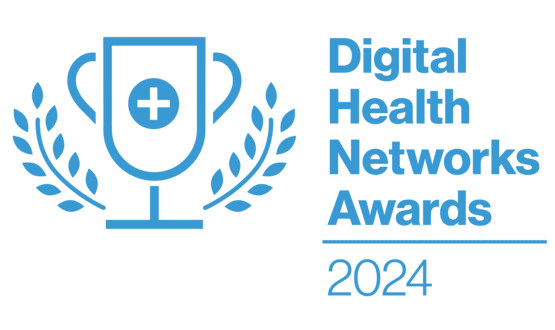Different but equal
- 4 November 2014

Chief clinical information officers and their senior, managerial colleagues are forming close working relationships, according to the latest CCIO Leaders Network annual survey. In the process, they are starting to get into the real finance, change and efficiency agenda facing the NHS.
Asked about their reporting relationship with their IT director or chief information officer, the respondents to the third annual survey said they not only have formal and one to one meetings, but work in partnership and as equals.
One CCIO wrote: “Like other clinical directorates in the trust, I work in a peer relationship with the director of informatics, who is full time and manages the budget.”
Another reported: “We work closely together at the same level.” A third said: “We work closely and in parallel”; and others picked words such as “equivalent” and “equal.”
More CCIOs are CCIOs
The survey’s findings are encouraging, because CCIOs are still a relatively new idea. EHealth Insider launched the EHI CCIO Campaign back in summer 2011, to encourage all NHS organisations to consider appointing a senior clinician to lead on IT and information projects.
The campaign was backed by ministers, and has gone on to be supported by the Department of Health and NHS England.
EHI now hosts a CCIO Leaders Network to support those CCIOs that are now in post, and to encourage the creation of a career path for young clinicians with an interest in IT and informatics.
The network knows of 76 people with the CCIO title, of whom 68 work in the NHS. However, other senior clinicians may do very similar jobs under different job names.
This year’s survey found that 14 of the 22 respondents who answered the question held a CCIO title and two had a more specific chief medical information officer – CMIO – or chief nursing information officer – CNIO – title.
The rest noted titles that include “clinical lead for informatics”, “clinical director for informatics”, “clinical director for IT” or “consultant clinical informatics specialist.”
Teams and teams of one
Unsurprisingly, most respondents had been in post for a relatively short period, with six of the 23 that responded to the question saying they had been in post for less than a year, and 15 for between one and five years.
Most are still working part time; with just three out of 20 respondents saying they have ten sessions / half days dedicated to their CCIO role, and most saying they had between two and four sessions officially set aside for this work.
In addition, in something of a set-back from last year’s results, the survey found that most are working on their own, rather than as the leader of a set of clinical information officers or leads.
Some trusts have appointed both a CCIO and a team of CIOs, if they are geographically dispersed, operate a number of large hospital sites, or are running major IT consolidation projects.
However, seven of the 20 respondents to the question said there was just ‘one’ clinical information lead or leads in their organisation; with two underlining this by adding “me!” by way of emphasis.
A couple of respondents said there were two or three clinical leads in their organisation; for example because if they were a CMIO they worked with a CNIO.
Five respondents said there were between six and ten clinical leads in their organisation, but then tended to add that they were “supportive” managers in clinical directorates or “champions” for a specific project.
Having said that, one respondent said: “I have a team of medical information officers for each directorate, a nursing IO, admin IO, and AHP IO” – making them perhaps the best supported CCIO in the country.
Clinically focused
While their roles and responsibilities may be evolving, CCIOs are senior people. In line with previous surveys, none of the 23 respondents who answered the question had been a clinician for less than ten years, and 17 had been clinicians for more than 20 years.
They have a line to senior management, with half of this year’s respondents (almost all of whom worked in acute trusts) saying they reported to the medical director, a third to other board members, and a third to the IT director or equivalent.
The theme of having a good working relationship with the IT director extended to those CCIOs that said they reported to them. One wrote: “I report to him, I seem him regularly, and he is completely accessible as necessary.”
Despite this, CCIOs in general are very focused on the clinical aspects of their jobs and the clinical staff with whom they need to engage.
Asked to list the “main clinical benefits you can provide as a CCIO”, common responses included “clinical engagement” and “patient safety” and variants of these.
Asked to list the “core skills” that they possessed, most put down “clinical leadership”, “clinical engagement” or a variant; while the next most frequent pick was “communication”, “communication skills” or similar.
Unsurprisingly, therefore, when asked to list the “skills areas in which you feel you have gaps”, the most common responses were “detailed IT knowledge”, “technical and system IT knowledge” or a variant; and the next most common were “project management” or “project management skills.”
Getting down to business
In the same vein, when respondents were asked to note down the main “business benefits you can provide to your organisation”, fewer responded, and those that did tended to focus back on quality or safety issues.
Several picked negatives: “Preventing catastrophic system deployments.” But some focused in on helping to generate the kind of efficiency savings that will be necessary for the NHS to meet the ‘Nicholson Challenge’ to find £30 billion by 2020-21 to bridge the gap between flat funding and growing demand.
Interestingly, although 19 of the 25 respondents in total to the survey said they worked in the acute sector, and only four said they worked in primary care, a clinical commissioning group, or a commissioning support unit, it was the latter who were more visibly focused on finance and ‘big picture’ business benefits.
One said they were looking to “centralise joint activities – reports, input forms, etc – so that practices don’t constantly end up reinventing the wheel, and we get the economies of scale this can bring.”
Having said that, there was a widespread desire to cut down on paperwork. One acute respondent wrote that they wanted: “Reliable business and performance reports that fall out of the system automatically, without hours of manual compilation.”
Another wanted to go further, and to create: “Performance dashboards that provide an overview of caseloads to clinical leads and managers.”
Yet a significant minority of respondents, from trusts that are known to be under financial pressure or to be embarking on reconfiguration plans, showed they are anxious for clinical IT to play a part.
One CCIO in a trust in this position said the main business benefit he could provide to his trust was: “Rationalisation of expenditure”. Another picked: “Cost savings through operational efficiency.”
Another wrote: “Supporting the reconfiguration/transformation programme.” Another suggested: “Reputational benefits through improved safety and quality.”
Working as a team
EHI set up the CCIO Leaders Network campaign to try and make sure that the clinical leadership that had been missing from the National Programme for IT in the NHS was not missing from the trusts that needed to make their own IT investments.
The CCIO Leaders Network has shown that clinicians can also help organisations to translate the benefits of IT into quality and safety benefits that engage clinical colleagues.
The most recent survey suggests they are also starting to work closely with IT directors and other managerial colleagues on finance and business issues. As one put it: “We work as a team.”




